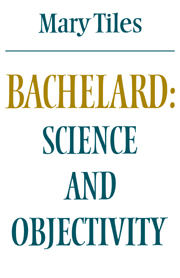Book contents
- Frontmatter
- Contents
- Editor's Introduction
- Preface (and Postscript)
- Acknowledgments
- Abbreviations
- 1 Philosophy of science: the project
- 2 Non-Cartesian epistemology and scientific objectivity
- 3 Non-Euclidean mathematics and the rationality of science
- 4 Non-Baconian science and conceptual change
- 5 The epistemology of revolutions – between realism and instrumentalism
- References
- Appendix: Biographical note
- Index
2 - Non-Cartesian epistemology and scientific objectivity
Published online by Cambridge University Press: 14 November 2009
- Frontmatter
- Contents
- Editor's Introduction
- Preface (and Postscript)
- Acknowledgments
- Abbreviations
- 1 Philosophy of science: the project
- 2 Non-Cartesian epistemology and scientific objectivity
- 3 Non-Euclidean mathematics and the rationality of science
- 4 Non-Baconian science and conceptual change
- 5 The epistemology of revolutions – between realism and instrumentalism
- References
- Appendix: Biographical note
- Index
Summary
When he says that contemporary science requires the adoption of a non-Cartesian epistemology, Bachelard does not merely mean that it requires the rejection of a Cartesian epistemology. He is signalling an essential connection between the new epistemology and Cartesian epistemology; for the new epistemology arises out of a critique of Cartesian epistemology in such a way that the new position cannot be understood without understanding the antecedent position and the way in which it has to be superseded. In other words, we are told that to understand his epistemology we first have to understand Descartes‘.
CARTESIAN EPISTEMOLOGY AND THE SEARCH FOR FOUNDATIONS
Descartes, as remarked in Chapter 1, stands as a father figure to two very different philosophical traditions, traditions within which his texts are read rather differently. This is made possible by the tensions within Descartes' own position, and in particular in his characterisation of the rational subject. For there are two aspects to the Cartesian rational subject. In his search for knowledge he employs method; this makes the acquisition of scientific knowledge a discursive process; it takes time and there is reasoning involved. This is what we find emphasised in the Regulae and in the Discourse on Method. But in the Meditations it seems that knowledge is only achieved in clear and distinct perception (the deliverance of natural light) which takes place instantaneously, or at least involves no process of reasoning. This is intuitive (as opposed to discursive), quasi-perceptual cognition.
- Type
- Chapter
- Information
- Bachelard: Science and Objectivity , pp. 28 - 65Publisher: Cambridge University PressPrint publication year: 1984



